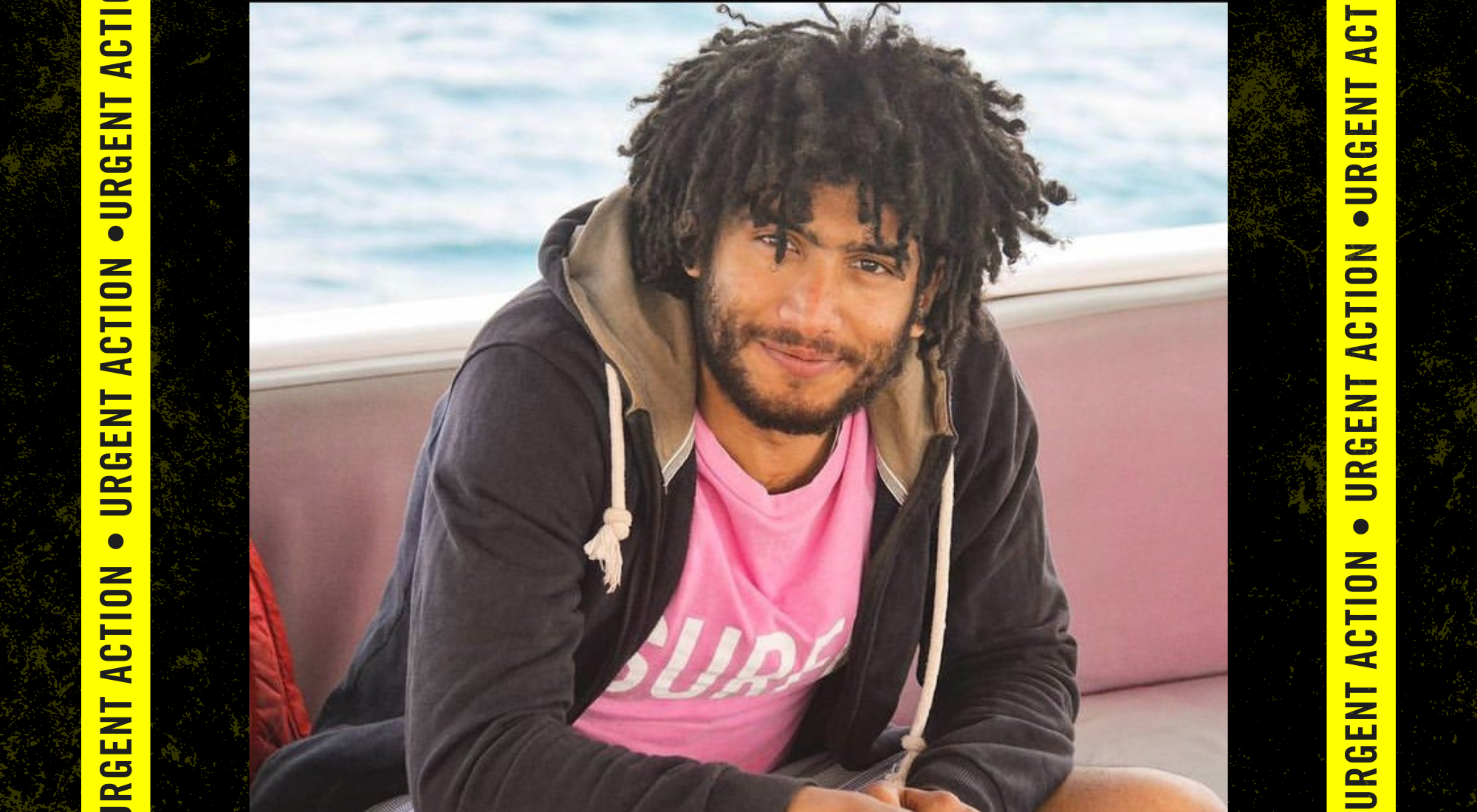On December 22, the Court of Cassation will review Badr Mohamed’s appeal against his wrongful conviction and five-year prison sentence. Badr, now a father, was just 17 when he was convicted in January 2023 after an unfair trial linked to the Ramsis Square protests on August 16, 2013. He is currently detained in Badr 1 prison, enduring harsh and inhumane conditions without proper medical care. The Egyptian authorities must overturn this unjust verdict and release Badr Mohamed immediately.
Here’s what you can do:
Write to the President of Egypt urging him to:
- Release Badr Mohamed from arbitrary detention and quash his unjust conviction and five-year prison sentence.
- Grant him regular access to his family and lawyers.
- Provide adequate healthcare to address his medical needs.
- Hold him in conditions that meet international standards for the treatment of prisoners.
Write to:
President Abdelfattah al-Sisi
Email: p.spokesman@op.gov.eg
X: @AlsisiOfficial
Salutation: Your Excellency:
And copy:
His Excellency Ahmed Abdallah Ibrahim Hafe
Ambassador
Embassy of the Arab Republic of Egypt
454 Laurier Avenue East
Ottawa, ON K1N 6R3
Tel: (613) 234-4931, 4935 Fax: (613) 234-9347/234-4398
Email: egyptembottawa@gmail.com
Arrest and unfair trial of Badr Mohamed
Badr Mohamed was arrested by security forces on August 16, 2013, during the Ramsis Square protests. He was just 17 years old at the time. Amnesty International documented that security forces used excessive force during these protests, killing 97 protesters and bystanders. When violence erupted, Badr sought safety in the nearby Al-Fath mosque. Security forces raided the mosque, arresting many trapped protesters and bystanders, including Badr.
He was named as a suspect in Case 8615/2013 and interrogated on August 19, 2013, without a lawyer. Initially detained with adults in Wadi al-Natron prison, Badr was later transferred to a juvenile facility, where he stayed until his release on bail in November 2013. International law requires that children be detained only as a last resort, for the shortest time possible, and under humane conditions.
After his release, Badr suffered from post-traumatic stress disorder and lived in hiding, fearing re-arrest. In a mass trial in absentia on August 18, 2017, Badr was sentenced to five years in prison. The charges included murder of police officers, attempted murder, and protesting without authorization. The trial, involving 494 defendants, was grossly unfair. Amnesty International found that the verdict relied heavily on testimonies from security forces and lacked credible evidence of Badr’s involvement in the protests.
Retried and convicted without fair process
On May 11, 2020, security forces arrested Badr Mohamed again in front of his wife during a Ramadan iftar. He was retried before a terrorism court starting in July 2020. Lawyers reported delays caused by the repeated addition of new defendants to the case. In 2022, the judge dismissed requests to call witnesses or review evidence.
The retrial occurred in prison-based courtrooms and ended on January 12, 2023. Badr was convicted of several charges, including “participating in an illegal gathering” and “attempted use of explosives.” He was sentenced to five years in prison. Like the original trial, the court relied on secret security reports and government testimonies, denying defense lawyers access to evidence. Witnesses who testified that Badr did not participate in the protests were ignored.
Inhumane prison conditions and hunger strikes
Badr is currently detained in Badr 1 prison under harsh and inhumane conditions. In the summer of 2023, dozens of prisoners, including Badr, went on hunger strike to protest the lack of basic rights. Temperatures soared above 40˚C, and prison authorities refused to provide fans. Daily power cuts and limited access to water made conditions unbearable. Detainees also protested inadequate healthcare, humiliating searches, and restricted family visits.
In response to the hunger strike, authorities introduced punitive measures. Some prisoners were transferred to distant prisons, while others in Badr 1 faced further abuses, including intentional water and electricity cuts. These actions violate the absolute prohibition against torture and cruel treatment under international law.
Amnesty International continues to call for an end to Badr Mohamed’s unjust detention and urges the Egyptian authorities to uphold prisoners’ rights and ensure humane treatment.
Please take action as soon as possible until June 12, 2025! The UA will be duly updated should there be the need for further action.




























